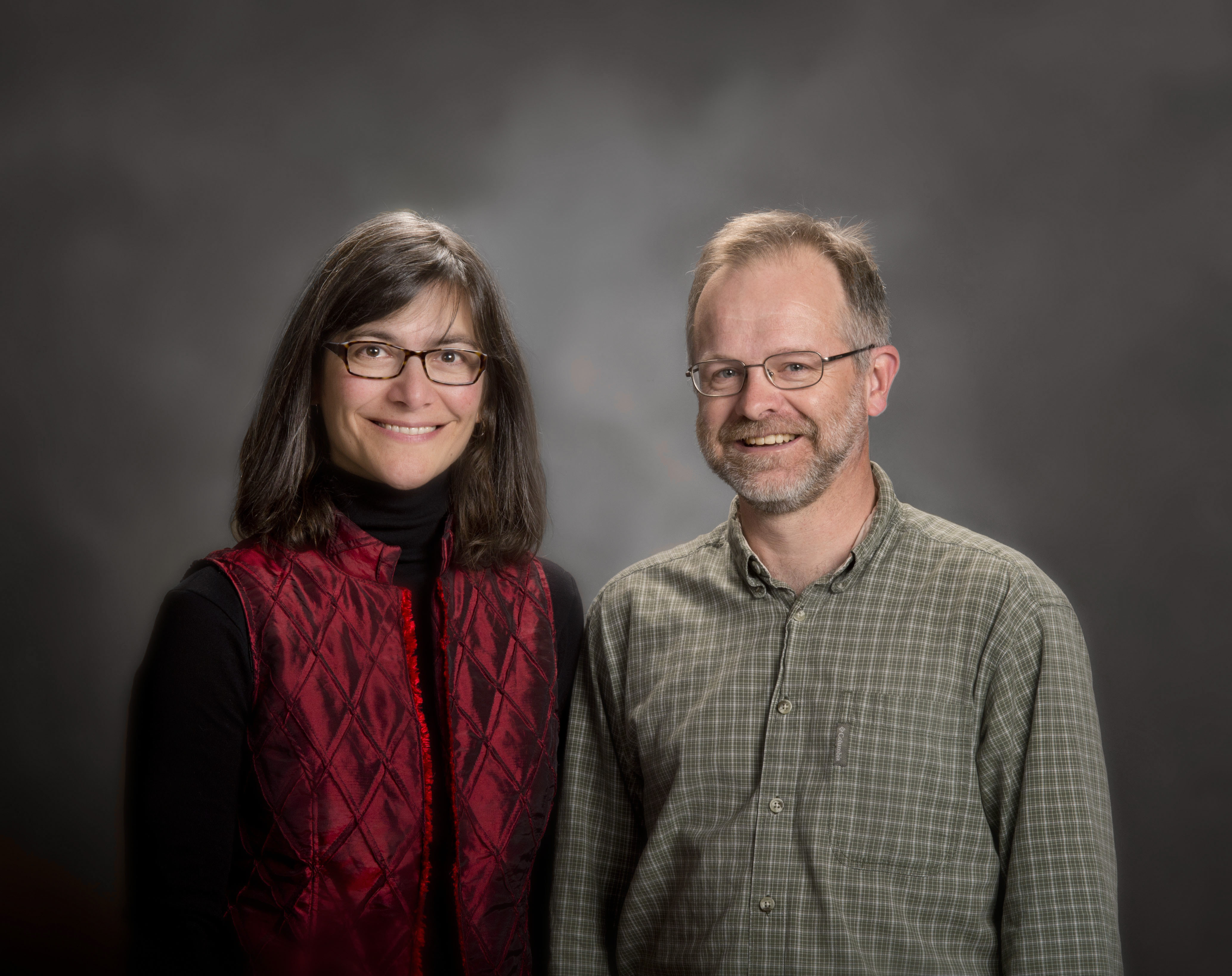Paola Zellner Bassett, Tom Martin receive 2014 XCaliber Award

Paola Zellner Bassett, assistant professor of architecture in the College of Architecture and Urban Studies, and Tom Martin, professor of electrical and computer engineering in the College of Engineering, have received Virginia Tech’s 2014 XCaliber Award for excellence as an interdisciplinary team making outstanding contributions to technology-enriched active learning.
Established in 1996 by the Office of the Provost, the XCaliber Award (shorthand for exceptional, high-caliber work) is presented annually by Technology-enhanced Learning and Online Strategies to recognize individual faculty members or teams of faculty and staff who integrate technology in teaching and learning. The award celebrates innovative, student-centered approaches.
This year’s team award recognizes the pair’s development and teaching of the undergraduate design course, Textile Space, which brought together design education and innovative technologies.
The course gave both engineering and design students a studio space/learning environment where they worked collaboratively on a wide range of projects, including the application of smart textiles for space exploration for NASA and a responsive installation, Between the Pyramid and the Labyrinth, used this fall at the Tech-or-Treat exhibit in The Cube at the Moss Arts Center.
As a course focused on innovative applications of smart fabrics in architecture within a technology-enriched learning and teaching environment, engineering and design students were challenged to find common ground by prototyping a toy using an Arduino board, sensors and actuators, and readily available modeling materials.
Students went on to work collaboratively on open-ended projects based on a new technology, while taking a human-centered design approach to exploring the range of expressions provided by textiles whose physical response is determined by computation.
Funding for the projects was provided by the Virginia Space Grant Consortium and the Institute for Creativity, Arts, and Technology.
As one of only three schools in the country invited to collaborate with NASA on student projects involving smart fabrics for manned space flight, Textile Space students had the opportunity to focus on one of three projects: an investigation of techniques for sensing and visualizing the 3-D shape of an inflatable, inhabitable textile structure while it unfolds and inflates; designing reconfigurable clothing for long-term space flights to minimize the number of garments that must be carried on the flight; and creating a boot-based interface for a wearable rocket pack.
Other student teams focused on the Tech-or-Treat exhibit in order to create opportunities for K-12 students to interact creatively with, and learn about the potential within art, space, and technology. Their design project explored the incorporation of infrared proximity sensors, microphones, cameras, and sensing devices that would gather data to be processed by microcontrollers that actuated a combination of lights, sound, and image that affected the perception of the space.
Zellner Bassett’s research interests on material, mainly textile media, and responsive environments, focus on the exploration of form and space through the fabrication of textile constructs, at the convergence of art, design and technology.
She received her bachelor’s degree from the University of Buenos Aires (Argentina) and her Master of Architecture degree from Southern California Institute of Architecture.
Martin is the co-director of the Virginia Tech E-textiles Lab. His research and teaching interests include wearable computing, electronic textiles, and interdisciplinary design teams for pervasive computing. In 2006, he was selected for the National Science Foundation's Presidential Early Career Award for Scientists and Engineers for his research in e-textile-based wearable computing.
He received his Ph.D. from Carnegie Mellon University and his bachelor’s degree from the University of Cincinnati.
Dedicated to its motto, Ut Prosim (That I May Serve), Virginia Tech takes a hands-on, engaging approach to education, preparing scholars to be leaders in their fields and communities. As the commonwealth’s most comprehensive university and its leading research institution, Virginia Tech offers 240 undergraduate and graduate degree programs to more than 31,000 students and manages a research portfolio of $513 million. The university fulfills its land-grant mission of transforming knowledge to practice through technological leadership and by fueling economic growth and job creation locally, regionally, and across Virginia.








